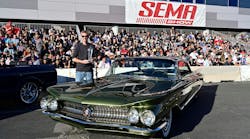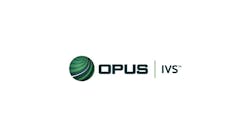The 7th Circuit dismissed DePaul University College of Law professor Steven Greenberger's prospective class action suit against GEICO in January. The case stems from a 2002 crash in which Greenberger's 1994 Acura was damaged. GEICO examined the car and gave Greenberger $3,284.69 to settle his claim. Later, when he was trying to sell the damaged car, Lake Side Auto Rebuilders in Evanston, Ill., provided an estimate that indicated it would take $4,938.65 to repair the vehicle.
Greenberger donated his car to charity without making any repairs – a decision that ultimately impacted his case. In 2005, he filed a class action suit against GEICO in Cook County, alleging breach of contract, fraud, and violation of the Illinois Consumer Fraud and Deceptive Practices Act based on what he claimed was GEICO's practice of systematically excluding necessary repairs from it estimates.
Among the repairs not included in GEICO's original estimate were "masking openings to prevent overspray," "covering the vehicle to prevent overspray onto glass," "checking seatbelts to ensure they worked properly," and "cleaning the car for delivery to customer."
Court strikes down fraud claims
An Illinois federal court ultimately entered a summary judgment in GEICO's favor, and the three-judge panel for the 7th Circuit (Chief Judge Frank Easterbrook and Circuit Judges Michael Kanne and Diane Sykes) upheld the lower court ruling, stating that breach of contract claims were foreclosed on by an Illinois Supreme Court decision, Avery v. State Farm Mutual Automobile Insurance Company.
Avery was a nationwide class action against State Farm challenging the company's practice of not using OEM parts to repair vehicles. The plaintiffs claimed that using aftermarket parts breached State Farm's promise to restore vehicles to their preloss condition. The Illinois Supreme Court reversed a lower court ruling in favor of the plaintiffs, holding that in order to establish a breach of contract, the plaintiffs would have to show that the parts specified or used by State Farm did not restore the vehicle to its preloss condition.
That case was watched very closely by the collision industry at the time, because the initial Avery verdict seemed to vindicate repairer concerns about aftermarket parts quality and would have established a more stringent standard for insurance companies relative to returning a vehicle to its preloss condition.
In this case, the final Avery verdict was used to refute all of Greenberger's claims, particularly since his vehicle was no longer available for examination. "Among other important holdings, Avery established the common-sense proposition that a policyholder's suit against his insurer for breach of its promise to restore his collision-damaged car to its preloss condition cannot succeed without an examination of the car," said the 7th Circuit ruling in the Greenberger case.
The court also noted that the higher estimate issued by the body shop did not establish a breach of contract, although it would be admissible as supporting evidence. Greenberger's claim, however, did not challenge the quality of the repair work (which was the basis of the Avery suit), but instead took issue with GEICO's alleged practice of low-balling estimates. He also contended he could prove his claim by showing that GEICO failed to follow industry standards in estimating auto repairs.
The judges also rejected these arguments.
"This theory suffers from the same proof problem: Without an examination of the vehicle, it is impossible to determine which repairs were necessary to fulfill GEICO's promise," the judges said in their ruling. "Whether GEICO follows 'industry standards' does not matter if its estimate was sufficient to restore Greenberger's Acura. The contractual promise at issue here is not a covenant to repair cars according to 'industry standards' but a covenant to restore collision-damaged cars to their preloss condition. The pertinent question thus is whether GEICO's payment was sufficient to fulfill this contractual obligation; under Avery the answer to this question requires an examination of the car."
The Court also upheld the dismissal of the statutory fraud claim and common law fraud claim, again based on the Avery precedent.
"Greenberger alleges that GEICO never intended to restore his car to its preloss condition and failed to disclose that it regularly breaches this contractual promise," the judges said. "These are breach-of-contract allegations dressed up in the language of fraud. They cannot support statutory or common-law fraud claims."
View the complete ruling by clicking on Greenberger vs. GEICO.

